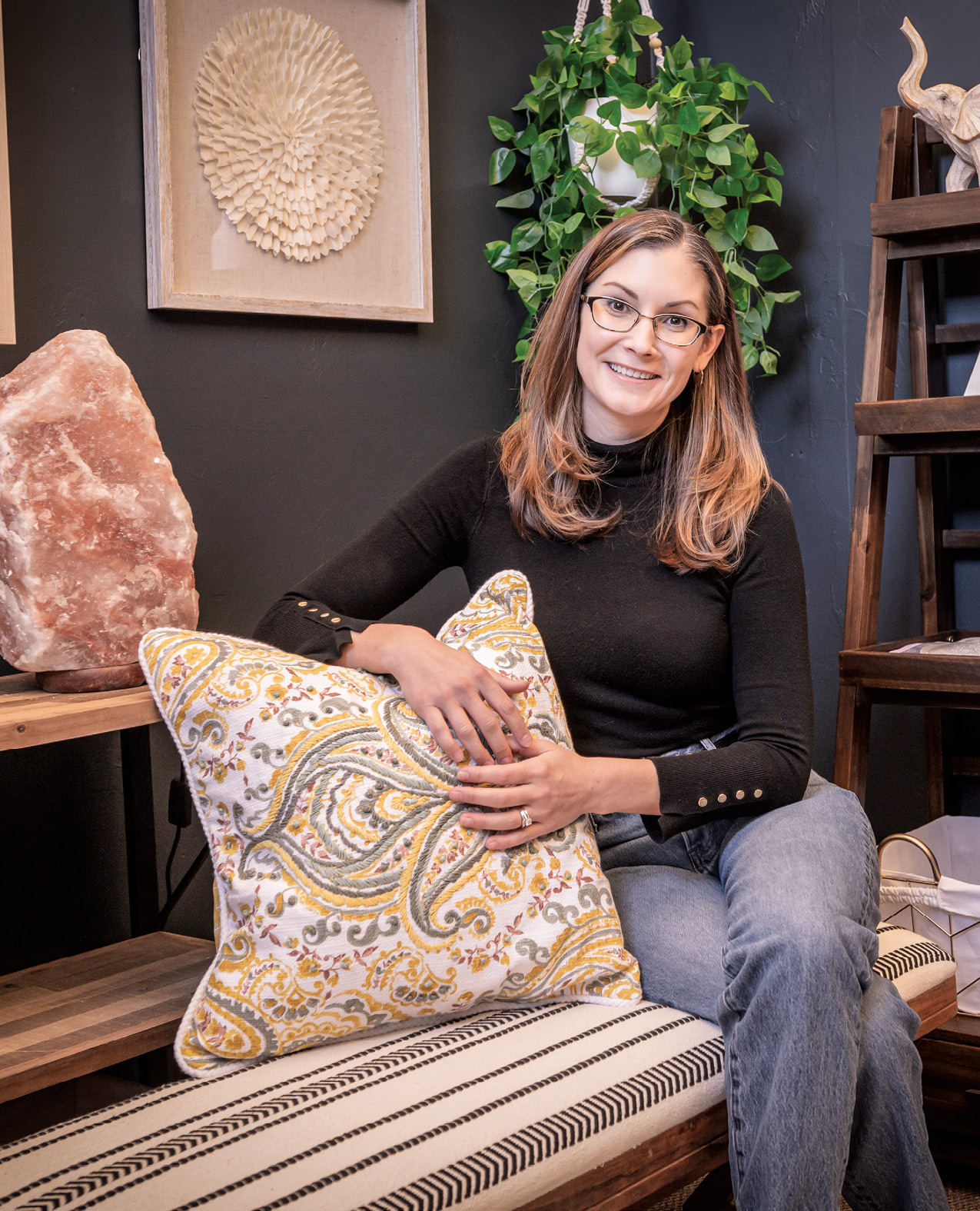Word to (becoming) the wise – how women can recognize what’s best for their wellness
By Erin Hunsader
It’s a New Year and with that so often people put new pressures on themselves, saying things like,
“I will eat better.”
“I will get more sleep.”
“I will move more.”
These are all great steps to living a healthier lifestyle, but what happens when you do all of these things and nothing changes?
Self care is always at the heart of feeling your best. But sometimes we may need the help of a health and wellness expert to guide us on our self care wellness journey.
At Wise Woman Wellness, Hormone expert Randi Mannhas helped over ten thousand womenand, she said, so often they have similar symptoms all of whichare clues or red flags to what’s going on in their bodies.
She reports far too many women are not feeling well today.
“They’re more tired, losing their zest for life, having unexplained weight gain, heavy periods, hot flashes, anxiety, insomnia … They’re so many symptoms out therethat women are experiencing that are actually hormone related and most women are unaware of this,” Mann said. “For any woman who is not feeling well and great self-care is just not working, then hormone testing should be done to assess a woman’s level of female and stress hormones. Getting educated about hormone balance and ways to correct imbalances are very important steps to feeling better.” Said Mann.
Mann, owner of Wise Woman Wellness has been helping women get “wise” about their health for over 35 years. She said women are referred to her by many sources including conventional and non-conventional health providers and current and past patients.
Sometimes women will come to her as a last resort after seeking medical care for a myriad of problems, from weight gain to fatigue to hypothyroidism. She finds it’s common that symptoms of low thyroid function are disregarded by some conventional providers so women feel unheard, misdiagnosed and their thyroid condition goes untreated until coming to Wise Woman Wellness. These women may be offered other drugs that don’t solve the root cause of their symptoms such as antidepressants, anti-anxiety medication, anti-inflammatory medications or sleeping pills.
Mann, a board-certified woman’s health nurse practitioner and NAMS certified menopause practitioner likes to combine the best of conventional, functional and integrative medicinehelping her patients balance their health by creating a wellness plan for them.
The plan, is based on patient test results, symptoms and on the time Mann spends with her patients (often the first visit is two-and-a-half to three hours) going over their health history, diet, sleep and exercise patterns as well as their stress levels, Mann said.
“Some of my patients have a lot of allergies or food sensitivities. Some of them are just more sensitive to medications. Many of my ladies are highly stressed. It’s interesting; I see a lot of teachers, bankers, real estate agents, entrepreneurs – careers that women have quotas in –productivity types of jobs like sales – everything that lends to that level of stress.” Mann said. “Sometimes I may see a very busy stay-at-home Mom whose job is just as stressful as a career woman. We talk about that –what’s your stress like at work, low, medium or high? What’s stress like at home? It’s high at home too – so you can get a sense of what’s happening in that woman’s world. With functional medicine, we’re all about, what’s the root cause? Why are you feeling this way? And so I try to get a sense of a woman’s LIFE journey,” Mann said.
After spending time with each patient, Mann develops a picture she can then base their wellness plan on.
In the next 4-6 issues of Health Living & Wellness magazine, we will be focusing on the elements that make up this picture. These elements are:
– Hormones
– Diet and supplements
– Detox
– Stress and sleep
– Exercise/ movement
– Putting it all together for a plan
Mann said, of her work with women, that;
“The end goal for any woman is to have a strong, healthy, long, vibrant happy life.” Mann said.“When they come here sometimes women have gone through several providers trying to get help and they’re just exhausted. I understand – I personally didn’t get help either when I was trying, so I have been in their shoes as well.”
This is when Mann asks that they attend her End Hormone Havoc seminar – an online class that takes a look at how proper hormonal balance and lifestyle supports optimal health and longevity while also preventing the decline of physical and cognitive function. It also helps patients know if they’re a candidate for that kind of treatment.
“The first thing we ask them to do is attend our ‘End Hormone Havoc’ seminar because it can help them decide if we’re a good fit. They need to understand that we’re not the traditional, conventional care. I’m very conventionally trained but also holistic and functionaland have over 30 years of women’s health and hormone management experience.” Mann said.
Mann also said many of her patients are already on track to focusing on a more holistic approach to taking control of their health.
“A lot of women who come here are also searching for somebody who can offer them a more natural, holistic, functional kind of approach (to wellness). They already understand what all that means and are practicing it,” Mann said.
Mann grew up observing her Mother, who she said was very ahead of her time in terms of holistic care.
“I grew up with my Mom believing in prevention before that was even known. My Mom read Adelle Davis books – she was one of the first Author’s to publish books onnutrition and illness prevention. My Mom would always say, ‘is there something natural that would help with this?’ (rather than justtaking an antibiotic or pain medication).” Mann said.
An observation Mann incorporated into her traditional training.
“So when I went to college, in my nursing classes, I always thought, ‘okay, so we have a prescription drug for that. Is there something natural that can help or a change in diet or supplements that we can bring in instead of just giving outprescriptions?’” Mann said.
Once the results from hormone testing are in, Mann can look at a woman’s health history to get a more thorough picture.
“We go through all of their history. I like to listen carefully to their symptoms and story. Then we go through her test results, what the numbers mean and my ideas for her treatment andher preferences. I may recommend customized, bio-identical hormone restoration therapy for herand professional gradesupplements to help her regain her health and feel better quickly,” said Mann.
This is all part of the first visit, and Mann stresses the importance of helping her patients understand their results in order to know why she has made the recommendations for her. When women know the “why” it is much easier for them to follow their wellness plan. She also provides articles and findings on other elements that come into plan in their overall plan.
“They also get info on food, sleep, stress management, gut health, if they’re having constipation or bloating, pain – you know, we can’t do everything all at once but we start with a few things and then a few more and a few more,” Mann said.
She also provides a supplement list based on her findings tailored to the patient’s needs. And, while she knows that a comprehensive plan can be a little overwhelming, both mentally and financially, she encourages them on the best place to start.
“I say ‘just do the first thing. Do one thing on your list.’ … It’s a partnership. It’s not just me saying, ‘this is what you have to do.’ I’m more of a coach on this journey of wellness for them.It’s the best job!” Mann said.
NEXT ISSUE: Wising up about what’s on the menu: a closer look at your diet and the supplements you’re taking




